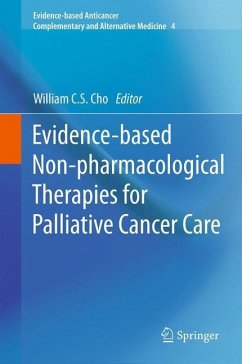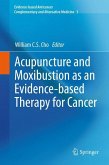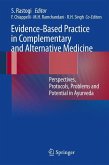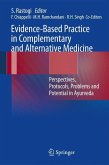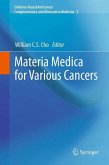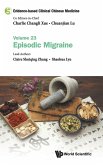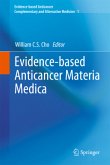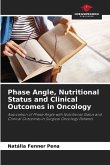Cancer is one of the leading killers in the world and the incidence is increasing, but most cancer patients and cancer survivors suffer much from the disease and its conventional treatments' side effects. In the past, clinical data showed that some complementary and alternative medicine (CAM) possessed anticancer abilities, but some clinicians and scientists have queried about the scientific validity of CAM due to the lack of scientific evidence. There is great demand in the knowledge gap to explore the scientific and evidence-based knowledge of CAM in the anticancer field. With this aim, a book series is needed to structurally deliver the knowledge to readers.
Integrative therapies comprise a variety of non-pharmacological interventions that assist in alleviating physical and psychological symptoms. Apart from being a life-threatening disease, cancer and its therapy are usually associated with a significant deterioration in the quality of life. There is growing evidence that non-pharmacological therapies provide symptom and pain management in cancer palliation. This volume is a specialised book presenting the research evidence relevant to the application of a range of commonly used non-pharmacological interventions in supportive cancer care, including massage, acupressure, Qigong, yoga, mind-body therapy, mindfulness-based intervention, and aromatherapy. A number of scientific researches and clinical studies support that these therapies offer potential beneficial effects for cancer patients in terms of reducing pain, anxiety, and other symptoms. Indeed, non-pharmacological therapies are increasingly gaining acceptance in the healthcare community as complementary to conventional cancer treatments. Most of them are non-invasive, inexpensive, and useful in improving quality of life, and they may be accessed by patients themselves.
Integrative therapies comprise a variety of non-pharmacological interventions that assist in alleviating physical and psychological symptoms. Apart from being a life-threatening disease, cancer and its therapy are usually associated with a significant deterioration in the quality of life. There is growing evidence that non-pharmacological therapies provide symptom and pain management in cancer palliation. This volume is a specialised book presenting the research evidence relevant to the application of a range of commonly used non-pharmacological interventions in supportive cancer care, including massage, acupressure, Qigong, yoga, mind-body therapy, mindfulness-based intervention, and aromatherapy. A number of scientific researches and clinical studies support that these therapies offer potential beneficial effects for cancer patients in terms of reducing pain, anxiety, and other symptoms. Indeed, non-pharmacological therapies are increasingly gaining acceptance in the healthcare community as complementary to conventional cancer treatments. Most of them are non-invasive, inexpensive, and useful in improving quality of life, and they may be accessed by patients themselves.
Aus den Rezensionen: "... liefert dieses Buch kompakte ... Punkt gebrachte Informationen zur Wirksamkeit und Sicherheit einer Auswahl von nichtpharmakologischen Verfahren. Als Informationsquelle für die klinische Praxis sehr geeignet." (in:Carstens-Stiftung www.Carstens-Stiftung.de, 15/April/2013)
From the reviews:
"This is an impressive collection of review articles examining the efficacy data, physiology, and safety of nonpharmacological therapies for cancer- (or cancer therapy-) related symptoms. ... This is as a solid reference for clinicians who want to explore the evidence behind nonpharmacological therapies for symptom management. ... This book is reasonably well organized with a thorough index, making it useful for relatively quick inquiries." (Eytan Szmuilowicz, Doody's Book Reviews, October, 2013)
"This is an impressive collection of review articles examining the efficacy data, physiology, and safety of nonpharmacological therapies for cancer- (or cancer therapy-) related symptoms. ... This is as a solid reference for clinicians who want to explore the evidence behind nonpharmacological therapies for symptom management. ... This book is reasonably well organized with a thorough index, making it useful for relatively quick inquiries." (Eytan Szmuilowicz, Doody's Book Reviews, October, 2013)

